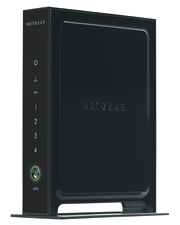 In case it wasn’t bad enough that Facebook was discovered to be behind the recent Google smear campaign they now have to also deal with looming government regulations. Although it has only been a couple of days since it was announced that Facebook hired PR firm Burson-Marstellar to smear Google’s name, both companies have teamed up to take on the Social Networking Privacy Act (SB 242). Along with Google and Facebook, Twitter and Skype were also mentioned to have cosigned a letter strongly opposing the new bill.
In case it wasn’t bad enough that Facebook was discovered to be behind the recent Google smear campaign they now have to also deal with looming government regulations. Although it has only been a couple of days since it was announced that Facebook hired PR firm Burson-Marstellar to smear Google’s name, both companies have teamed up to take on the Social Networking Privacy Act (SB 242). Along with Google and Facebook, Twitter and Skype were also mentioned to have cosigned a letter strongly opposing the new bill.
This isn’t the first time that we have heard of the bill that was introduced by California Senate Majority Leader Ellen M. Corbett. The bill previously addressed the privacy and security for users under 13 but has since been amended to incorporate all users after initially facing heavy opposition. The motivation behind the legislation was to protect underage users, it’s estimated that although the Facebook age limit is set at 13, over 7.5 million users are under that age and 5 million of those users are even under the age of 10. The Polly Klaas Foundation found that over 42% of teens post personal identifiable information on social media sites which provides a solid foundation to Corbett’s concerns.
The Social Networking Privacy Act would require users to select and acknowledge their privacy settings before submitting their user registration. The default privacy setting would list only a user name and city of residence until that user decides to adjust their user settings. In Senate Majority Leader Corbett’s words “you shouldn’t have to sign in and give up your personal information before you get to the part where you say ‘please don’t share my personal information.”
Facebook CEO Mark Zuckerberg states that “making personal data public is the new social norm”. Currently Facebook requires users to provide their personal information prior to registering and once registered, users can then customize their privacy settings. Until adjusted the current default setting is to share the provided information with all other users. Since the option not to share your personal information is only available once the information is already out there, there is a strong argument for user privacy being at risk but does it warrant government regulation?
In addition to the legislation’s main goal of requiring social networking sites to provide a detailed privacy policy prior to registration the legislation also aims to provide parents with the ability to request the removal of their child’s personal information. The bill states that if these sites fail to comply within 48 hours of the request it will cost them $10,000 for each occurrence.
Given the Recent Headlines concerning Google and Facebook it is clear that the proposed legislation takes priority. Both companies feel that the bill is unnecessary and that government micro-management will likely cause more harm than good. Bills like this will suffocate the age of social networking and will often hinder the innovation of future technologies or businesses.
It’s understandable for government to feel the need to step in if there is a possibility of harm or danger but in this case there would seem to be better options. After all, users can still select the privacy option that they feel is adequate after they provide that information. As for the underage use aspect, if Facebook was to enact a default sharing option with only a user name and city, what is to stop the underage users from changing their privacy option to shared once they create the account?
Currently the Social Networking Privacy Act has passed a senate committee and is seeking a majority vote in the full senate. If passed there it will become full legislation and require final approval from the governor’s office.
How do you feel about government regulations on Facebook? Do Senator Majority Leader Corbett’s arguments justify these regulations?
Thanks for Reading and Have a Great Day!
Dustin









